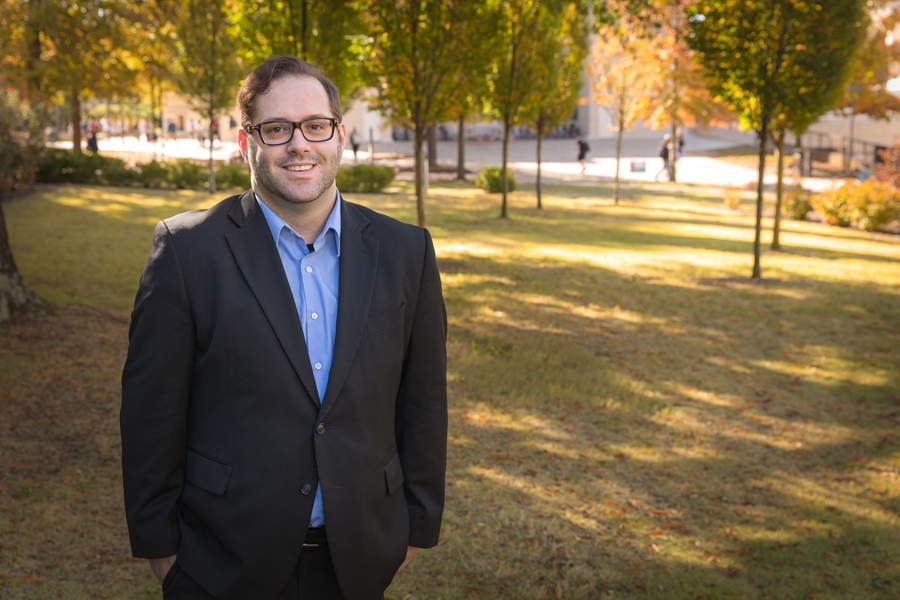U of A law professor Jordan Blair Woods challenges the conventional wisdom that only police can enforce traffic laws.
In “Traffic Without Police,” to be published in Stanford Law Review, Woods articulates a new legal framework for traffic enforcement, one that separates it from critical police functions, such as preventing and deterring crime, conducting criminal investigations and responding to emergencies.
If not the police, who then would enforce traffic laws? As Woods explains, jurisdictions would delegate most traffic enforcement to newly created traffic agencies. These public offices would operate independently from police departments and would hire their own traffic monitors to conduct and oversee traffic enforcement, including stops. Police officers would become involved in traffic stops only for serious violations that are a criminal offense or public threat.
“Traffic stops are the most frequent interaction between police and civilians today,” Woods said. “And because we know traffic enforcement is a common gateway for funneling over-policed and marginalized communities into the criminal justice system, these stops are a persistent source of racial and economic injustice.”
Previous research has shown that Black and Latinx motorists are disproportionately stopped by police for traffic violations. Compared to white motorists, these minority groups are also disproportionately questioned, frisked, searched, cited and arrested during traffic stops.
Many of these stops and intrusions are considered “pretextual,” according to legal definition, meaning that they enable officers to initiate contact with motorists and to then search for evidence of non-traffic crime without reasonable suspicion or probable cause. In this sense, the traffic stop has functioned as a gateway unfairly targeting Black and Latinx motorists. Pretextual stops sometimes also lead to police mistreatment and abuse.
So far, there is one example of the reorganization that Woods articulates. In July 2020, as part of a comprehensive plan to make structural police reforms, the city of Berkeley, California, voted in favor of a proposal that removes police from conducting traffic stops. The proposal directs the city to create a transportation department staffed by unarmed civil servants who would be in charge of enforcing traffic laws. Other municipalities are considering similar reforms that would remove police from traffic enforcement to varying degrees.
In addition to the social benefits mentioned above, especially for minority communities, removing police from traffic enforcement and adopting traffic law reforms that Woods proposes could put an end to unfair and often subjective reliance on traffic ticket revenue to fund state and local budgets. Likewise, such reform could reduce or eliminate financial and professional incentives that contribute to aggressive and biased traffic enforcement, namely prohibiting the issuing of traffic tickets as a measure of professional performance.
Woods’ study can be downloaded at SSRN.
Woods is the faculty director of the Richard B. Atkinson LGBTQ Law & Policy Program at the U of A School of Law.
About the University of Arkansas: The University of Arkansas provides an internationally competitive education for undergraduate and graduate students in more than 200 academic programs. The university contributes new knowledge, economic development, basic and applied research, and creative activity while also providing service to academic and professional disciplines. The Carnegie Foundation classifies the University of Arkansas among fewer than 3% of colleges and universities in America that have the highest level of research activity. U.S. News & World Report ranks the U of A among its top American public research universities. Founded in 1871, the University of Arkansas comprises 10 colleges and schools and maintains a low student-to-faculty ratio that promotes personal attention and close mentoring.
Contacts
Matt McGowan, assistant director of research communications
University Relations
479-856-2177, dmcgowa@uark.edu
Jordan Blair Woods, associate professor
School of Law
479-575-5601, jbwoods@uark.edu
